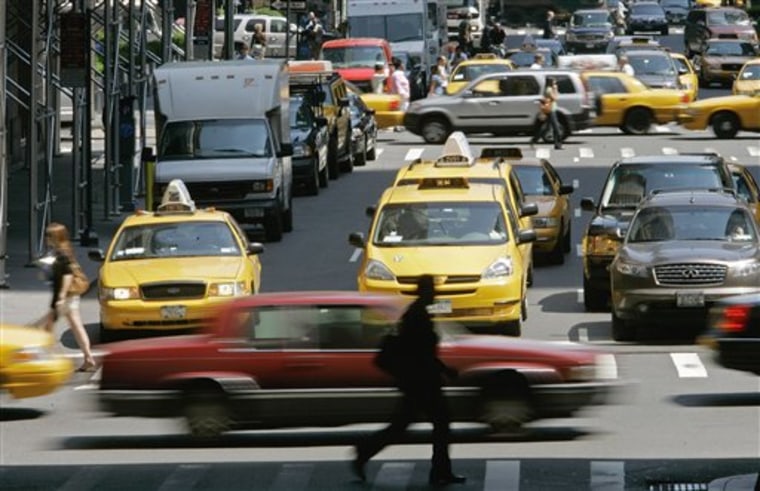The federal government has agreed to pay $354 million to New York City to help it launch an ambitious plan to reduce traffic by charging tolls for driving into the busiest parts of Manhattan.
New York’s effort, called congestion pricing, would be the first such toll program in the U.S., although similar programs already exist in London and Singapore.
Mayor Michael Bloomberg has touted the toll plan to reduce gridlock and pollution, but federal support was jeopardized by weeks of haggling among New York state leaders, who finally struck a compromise agreement on congestion pricing.
“We’ve worked very hard to secure these funds,” said Bloomberg. “I think this is a major victory for the people of New York City.”
The U.S. Department of Transportation planned to announce other cities receiving funds later Tuesday. They had been considering which five out of nine cities would receive a major infusion of cash for local traffic reduction plans.
Also competing for federal aid was Minneapolis, where divers are still trying to find the remains of four missing motorists after a catastrophic bridge collapse. Nine people are already confirmed dead in the Aug. 1 collapse.
The other cities seeking funding were Atlanta, Denver, San Francisco, San Diego, Miami, Seattle and Chicago.
DOT Secretary Mary Peters said the New York money is contingent on the state Legislature approving congestion pricing within 90 days after it reconvenes.
“I share the mayor’s confidence that the support will be there,” said Peters. “Drivers are paying today in time delays and unreliability.”
Tax on middle-class?
Bloomberg’s plan would charge cars $8 and trucks $21 to enter Manhattan south of 86th Street on weekdays between 6 a.m. and 6 p.m.
New York opponents of congestion pricing argue that it won’t affect driver behavior enough to improve air quality or overall traffic patterns. They also say it amounts to a tax on middle-class New Yorkers who live outside Manhattan.
The federal decision does not guarantee funding, and it is still unclear whether the deal struck weeks ago by New York state leaders will hold. Under that agreement, a commission will be formed to examine the overall concept of reducing traffic. After hearings and reviews, the group is to make a recommendation by the end of January.
